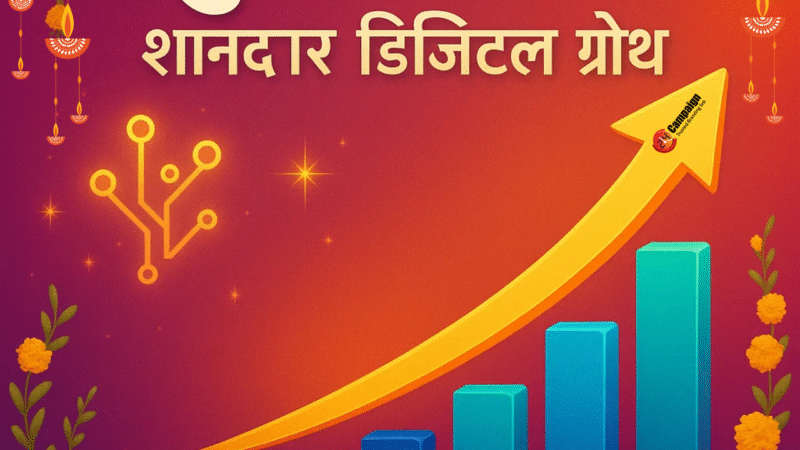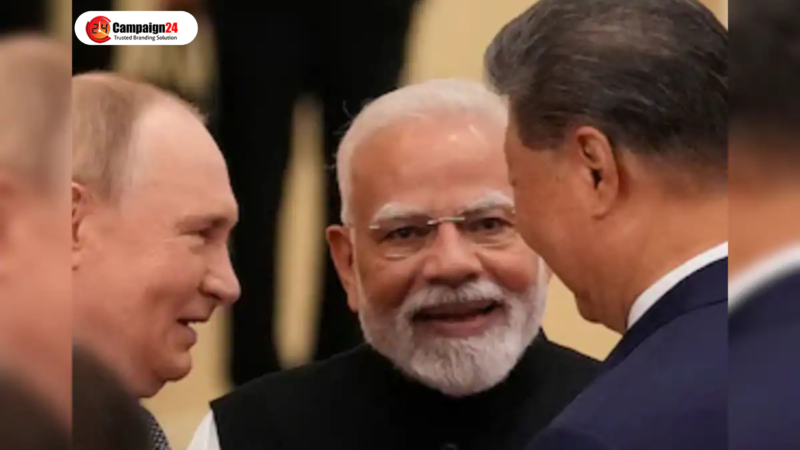Nagpur Violence Linked to Vicky Kaushal’s ‘Chhaava’: Maharashtra CM Fadnavis’ Statement Sparks Debate

The recent riots in Nagpur have taken a dramatic turn after Maharashtra Chief Minister Devendra Fadnavis linked the violence to Vicky Kaushal’s blockbuster historical film, ‘Chhaava’. The movie, based on the life of Chhatrapati Sambhaji Maharaj, has not only dominated the box office but also sparked political and social discussions across Maharashtra.
According to CM Fadnavis, the portrayal of Sambhaji Maharaj’s struggles against Mughal emperor Aurangzeb in the film ignited public anger, which allegedly contributed to the unrest in Nagpur. The connection between cinema and real-world violence has now become a major talking point, with multiple political leaders weighing in on the matter.
In this blog, we will explore the Nagpur riots, the role of ‘Chhaava’ in fueling public sentiment, political reactions, and its impact on Maharashtra’s socio-political landscape.
Nagpur Violence: What Happened?
On March 17, 2025, violence erupted in Nagpur after Vishwa Hindu Parishad (VHP) and Bajrang Dal supporters organized a protest demanding the removal of Aurangzeb’s tomb from Maharashtra. The situation escalated when protesters burned a photo of Aurangzeb and a symbolic grave wrapped in a green cloth.
Rumors spread that the green cloth contained sacred verses, which allegedly angered a section of the community, leading to stone pelting, vehicle arson, and clashes with police. To control the situation, Nagpur police imposed a curfew in multiple areas, including:
- Kotwali
- Ganeshpeth
- Tehsil
- Lakadganj
- Pachpaoli
- Shantinagar
- Sakkardara
- Nandanvan
- Imamwada
- Yashodharanagar
- Kapilnagar
More than 50 people have been detained, and multiple FIRs have been filed against individuals involved in the riots.
Maharashtra CM Links Violence to ‘Chhaava’
While addressing the Maharashtra Legislative Assembly, CM Devendra Fadnavis made a surprising statement, linking the Nagpur riots to the emotions stirred by ‘Chhaava’. He said:
“The movie ‘Chhaava’ has ignited people’s anger against Aurangzeb. While historical awareness is important, we must maintain peace in Maharashtra.”
Fadnavis also suggested that the riots appeared to be pre-planned, indicating that certain groups might have exploited public emotions for their own agendas.
His statement has sparked a larger debate on the influence of historical films on contemporary politics and public sentiment.
Deputy CM Eknath Shinde’s Reaction
Maharashtra Deputy Chief Minister Eknath Shinde also weighed in on the matter. Defending the sentiments of the protesters, he stated:
“Such a brutal incident has never occurred before. The protesters are fighting for the pride of Chhatrapati Sambhaji Maharaj. Those who support Aurangzeb should read history and watch the movie ‘Chhaava’.”
Shinde’s remarks have further fueled the controversy, as opposition parties accuse the ruling government of politicizing history to divide communities.
Political Reactions: Opposition Slams Government
The Opposition parties have strongly criticized the BJP-led Maharashtra government, blaming them for deteriorating law and order in the state.
Aaditya Thackeray (Shiv Sena UBT)
Shiv Sena UBT leader Aaditya Thackeray took to social media, posting:
“The law and order of Maharashtra has collapsed like never before. Nagpur, the home city of the CM and Home Minister, is burning. The government must take responsibility.”
Supriya Sule (NCP – Sharad Pawar Faction)
NCP MP Supriya Sule also condemned the violence, stating:
“Maharashtra has always been known for its progressive values. Let’s not allow politics to divide us.”
Congress Blames the Ruling Party
Congress leader Pawan Khera called the riots a “planned attempt to manipulate history for political gain.” He accused the BJP of using historical narratives to provoke unrest before elections.
‘Chhaava’ Movie: Box Office Success vs. Controversy
Amidst the controversy, Vicky Kaushal’s ‘Chhaava’ continues to break records. The film, which released on February 14, 2025, has:
✅ Crossed ₹500 crore in India within 23 days
✅ Become the first Bollywood film of 2025 to reach this milestone
✅ Received widespread critical acclaim, especially for Vicky Kaushal’s performance
Despite its success, the movie has sparked heated debates about its portrayal of Aurangzeb and whether it fuelled religious tensions.
Vicky Kaushal’s Reaction
Reacting to the controversy, Vicky Kaushal shared a heartfelt message on social media:
“I am overwhelmed by the love for ‘Chhaava’. This film is about our history, our pride. I urge everyone to watch it with the same spirit.”
Kaushal, however, has not commented on the riots or political statements linking his film to the violence.
Impact of ‘Chhaava’ on Maharashtra’s Socio-Political Landscape
The controversy surrounding ‘Chhaava’ raises critical questions:
🔹 Can historical films influence political and social sentiments?
🔹 Should filmmakers be held responsible for real-world consequences of their work?
🔹 Is Maharashtra witnessing a dangerous trend of history being used to provoke unrest?
Many experts believe that while films like ‘Chhaava’ play an important role in educating people about history, they can also unintentionally trigger emotions that lead to real-world conflicts.
Next Steps: What Can the Government Do?
To prevent further violence and ensure peace in Maharashtra, the government must:
1️⃣ Strengthen Law Enforcement: Deploy additional security forces in sensitive areas
2️⃣ Promote Responsible Dialogue: Engage historians and scholars in public discussions
3️⃣ Avoid Political Provocation: Leaders should refrain from making statements that escalate tensions
4️⃣ Hold Rioters Accountable: Take strict legal action against those inciting violence
5️⃣ Encourage Cultural Education: Promote objective discussions on historical events
Conclusion: Can History and Cinema Coexist Peacefully?
The Nagpur violence and its link to ‘Chhaava’ highlight the power of cinema in shaping public sentiment. While movies based on history are important, they must be handled responsibly to prevent real-world consequences.
Maharashtra, known for its rich heritage and progressive values, must strive to balance historical pride with communal harmony. It is up to both leaders and citizens to ensure that history is learned, not used as a tool for division.
What’s Your Take?
Do you think historical films should be held responsible for influencing public emotions? Drop your thoughts in the comments below! 👇






